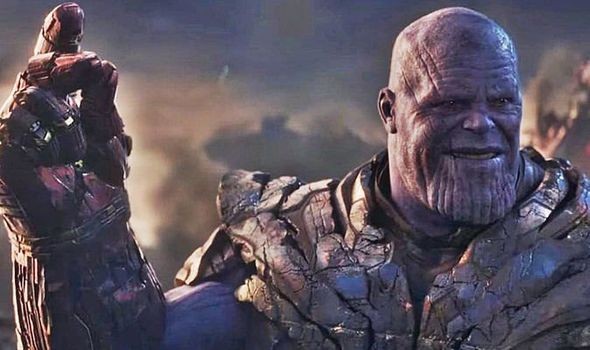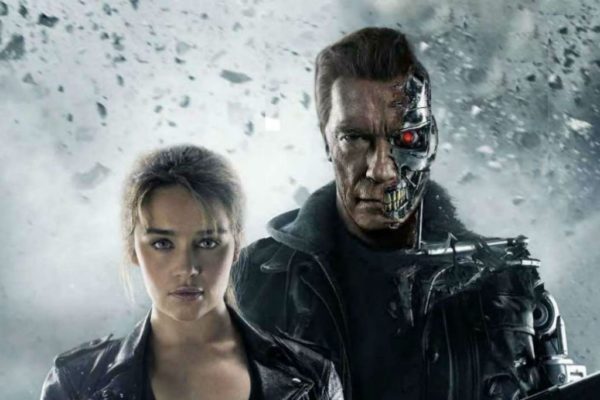Tom Jolliffe looks at an evolving landscape in Chinese cinema, a market that pre-pandemic, had Hollywood seeing dollar signs…

Hollywood still remains the hub of cinema around the world. As an entity it churns out money spinning blockbusters across America, and across the world. For a long time the US market seemed to be far and away the big dog in terms of bums on seats and revenue. For any film outside the US, if you broke America you could conceivably have a mega smash. For American productions (and to a lesser extent British, or co-Brit productions) the domestic was the yardstick for measuring success. You bomb out in America and chances are you’ve bombed out full stop. Some films had the benefit of the worldwide gross producing something of a parachute effect. You still come down to Earth, but minus the crash. Then something happened; Probably beginning with Avatar, but with something of a boom 6-7 years ago, Hollywood blockbusters had a surge of popularity in China.
A lot has changed in China over the last 25 years, and for all the contentious aspects, a lot more freedom is enjoyed across the country, whilst the overall wealth of citizens has seen a big rise in the middle class there. The western influence has also increased and all the chains you’ll see in the West, you’ll likely see over there. The cinema audiences also opened themselves to the western styled blockbuster. Several franchises have proved immensely popular there. The Avengers, The Fast and Furious films, Transformers, Jurassic World and a host more. Spectacle is key and creature features or high concept action seem to be top sellers. It’s not merely that you can make money, if everything fits, in China; you can make gargantuan amounts. Even with a language barrier (many chains will play the films in English with subs) audiences are down and quite open for effects driven spectacle over perhaps dramatic weight because it’s escapist and it translates well.
It’s the proverbial golden goose, in part driven by Chinese co-productions (which is all but essential in getting that release spot in the first place). Of late too, films that would have bombed without trace, had a second wind thanks to their Chinese gross. Terminator: Dark Fate only exists because Terminator: Genisys did exceptionally well in China (just about the only region it did). Michael Bay may have seemingly gone to the well once too often with Transformers, and Transformers: The Last Knight tanked in the US. In China however, it’s the 36th highest grossing film of all time. Though still didn’t do quite enough to stem a reputed $100 million overall loss for Paramount (though I suspect in actuality it probably turned a small profit).

All this is in danger of changing though. After a period of somewhat warmer relations politically, there’s been discord (even not accounting for respective responses to pandemic handling). All politics aside though, this represents a potential blocker. If you don’t have the government onside (and the outgoing US president did for international relations what a well timed fart does for elevator air quality) then that’s a door shut from the get go. There’s been a definitive move to try and bring back more film production and jobs to China, as opposed to outsourcing too much money to Western lead productions (though still big investment in American production and distribution). Granted many of these productions have made a distinct move to stay onside of the Chinese censors, but in the last two years we’ve seen a marked push from China to produce big blockbusters themselves, and signs seemed to be edging toward fewer Hollywood releases (and more stringent caps) even before the pandemic changed the landscape further.

Likewise a number of high profile Chinese blockbusters have been making huge amounts of money. At a time where no one wants to release a major picture in the West, China are still grossing huge numbers with films like Detective Chinatown 3 and Hi Mom, both of which are still playing. Their highest grossing film ever remains Wolf Warrior 2, a kind of Chinese reworking of the Michael Bay formula. Sure, some might say pulling away from the Chinese market might be culturally beneficial. There’s been no shortage of suggestion that Chinese propaganda is making dangerous headway into Western cinema, or that their continued investment in American films and cinema chains is a power play. In reality that’s a slightly xenophobic back foot (conspiracy lovers) response. The films in question often have little more than a distinctly jingoistic approach, portraying Chinese characters as world saving, honourable heroes. Unless I missed the subliminal message to buy Huawei. Jingoism is okay, as long as it’s your own jingoism. Wave the stars and stripes for American cinema, curtsy to her Maj in British film etc. It is certainly somewhat contentious to be pandering specifically to one major market, but pandering isn’t new to the Hollywood marketing machine. It’s a frequent consideration that a conglomerate like Disney are well versed in. The fact is, in the tent-pole arena, you do your best to make everyone happy, to be as inoffensive as possible. These films will feel watered down regardless of whether it’s diluted for China or not.
Removing Western cinema from the Chinese market will not take censorship out the equation, that is assured and for the types of films China was showing from the West, any open and honest conversations didn’t come as part of the package anyway (because robot smashes shit up good). So now with Wolf Warrior 2 et al, there’s a feeling that audiences are embracing their own. The films are catered entirely to them and they’re beginning to compete for visual scope and spectacle as more money is being ploughed into high concept, effects heavy films (and the quality is markedly better of late). Combine that with a reluctance from the west to give the East the premiere showing of big franchise pictures, and a current dearth of Western releases in China could see a very definitive change in a market where the money was spreading like wildfire for Vin Diesel star vehicles. Hollywood wasn’t just piquing the curiosity of a market with a booming rise in multiplex chains (based on a very Americanised model) it was filling a decided gap and delivering films that weren’t being made domestically, that were becoming in vogue as previously popular genres were drifting out of fashion in mainland China. That gap in the market is closing and the productions in China are seeing significant investment, to not just compete, but to potentially become the biggest theatrical release market in the world.
As the door narrows, dangerously close to a close, Hollywood has yet another consideration in how to move forward post Pandemic. The problem is evident. Cinema chains and the theatrical release has taken a hammering with Covid. In the UK we’re still waiting for cinemas to re-open. In the US they are slowly seeing buds of recovery, but still a long way off making the kind of money that makes the $100 million plus budget a feasible outlay (where’s the next $100 mill opening weekend going to come from?). Going forward, more than ever, there’s going to be something of a need to reign back the budgets and to also ensure the domestic audience really desires whatever film is being produced. This might mean that something that might have had a lifespan because of China, like another Terminator or Expendables film, now can’t be considered without changing the budget model completely. Where once the prospect of a hefty Chinese gross offered enough enticement to green-light some films, that lure may not be there in 5 years.
Tom Jolliffe is an award winning screenwriter and passionate cinephile. He has a number of films out on DVD/VOD around the world and several releases due out in 2021, including, Renegades (Lee Majors, Danny Trejo, Michael Pare, Tiny Lister, Ian Ogilvy and Billy Murray), Crackdown, When Darkness Falls and War of The Worlds: The Attack (Vincent Regan). Find more info at the best personal site you’ll ever see here.













